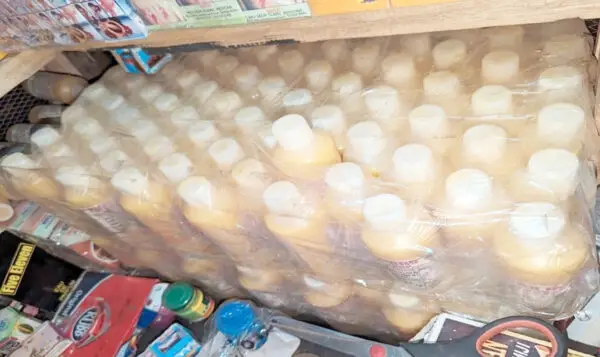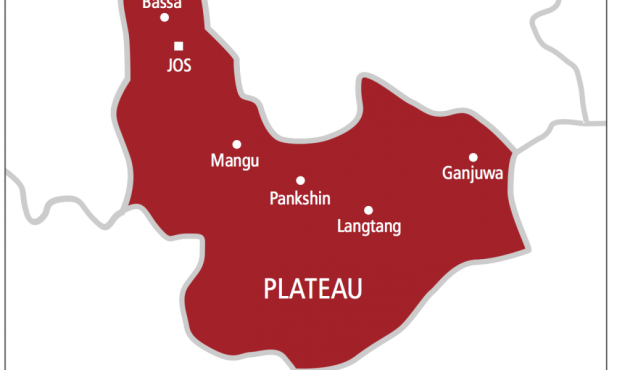EXPOSED: Baba Aisha, Nigeria’s Herbal Doctor Cashing Out On Deadly Concoction
In Abuja, Nigeria’s Federal Capital Territory, many residents consume ‘Baba Aisha Herbal Medicine’, a low-end herbal product that sells for just N100 and is touted to cure common diseases. In this five-month-long investigation, Kemi Busari scientifically probes the content of the concoction while questioning regulatory frameworks that allow its supply to thrive. As the sun sets on the bustling streets of Abuja, a symphony of voices echoes through the residential communities; the voice of hope and healing emanating from horn speakers perched atop vehicles as herbal medicine vendors sing their healing song to all who will listen. Amongst the various elixirs and tonics on offer, one potion reigns supreme: Sacra Herbs, known popularly as Baba Aisha herbal medicine. From thronging markets to busy intersections in Kubwa, Lugbe, Nyanya, Jabi, Kuje, Kurudu – in fact, every residential community in the federal capital territory – vendors of this medicine hawk their wares, promisingto cure a litany of ailments for a mere N100. Today, Baba Aisha, the sturdy figure behind the Sacra Herbs empire, takes centre stage in a spellbinding nine-minute advertisement blaring from the horn speaker balanced on a rickety Honda Accord car, permanently parked at Kurudu junction. The ad opens with a devout prayer as the producer, who doubles as the voice-over artist, introduces himself as Dr Salisu Sani Na Wagini (Baba Aisha) and implores the heavens to guard his listeners against the twin curses of poverty and business loss. With a flourish, shielding his apparent lack of fluency in the English language, Baba Aisha goes on to vaunt the many testimonies from satisfied customers while confidently listing the various maladies Sacra Herbs can cure: typhoid fever, malaria, stomach ulcers, rheumatism, waist pain, piles, and more. He urges his audience to take each of the the120ml bottles two times a day and to eat before consumption. The ad then shifts to a litany of common symptoms, accompanied by boasts of the thorough research and expert craftsmanship that go into each bottle of Sacra Herbs. Then, he switches to a passionate appeal for people to turn away from the false promises of hospitals and modern medicine and instead, trust in the power of Baba Aisha’s brew, especially for children. A branded sales car in Kurudu “Even if you have the intention to go to hospital, I Dr. Salisu Sani say don’t go. Even if you go (they’ll) only say your children need drip or add them blood,” he said in the recorded ad. “Not everybody is capable to buy blood…but when you come here with small money, you can take our herbal medicine, and you’ll not get any sickness in your body anymore,” he added, leaving the audience with a sense of hope and conviction that his concoction is the answer to all their ailments. Lurked behind these promises is an unsealed bottle of Sacra Herbs tainted with question marks. Questions about its origin; questions about its content, ingredients and mixing formula; questions about prescription and qualification of the producer; and, more importantly, questions about the regulatory framework upon which the product thrives. To residents of Abuja and adjoining states, where the herbal product is prominent, Sacra Herbs come as a cheap and effective option whenever they are down with ailments, but months of rigorous investigation, which includes extensive laboratory testing of the product, put this in serious doubt. The unregistered concoction What Baba Aisha referred to as medicine in the advertisement is a liquid mixture sold in a 120ml unsealed bottle. Each bottle contains a yellowish, minty liquid with a noticeable powdery residue. Our investigation reveals that the colour and amount of residue in each bottle are determined by retailers who add a black powdery substance after taking stocks of the pure yellow liquid. The bottle also contains information on ingredients, a list of potential ailments cured, dosage, storage information, registration number, company details, telephone numbers and a picture of the producer. In the 14 locations visited across Abuja, the presentation and details on the items are the same. A bottle of Sacra Herbs One quick giveaway on each bottle is that the product carries not one, but two NAFDAC registration numbers. The National Agency for Food and Drug Administration and Control (NAFDAC) is responsible for regulating and controlling the manufacture, importation, exportation, advertisement, distribution, sale and use of food, drugs, cosmetics, medical devices, chemicals and packaged water in Nigeria. According to NAFDAC’s Food, Drugs and Related Products Act, no herbal medicinal product should be manufactured, exported, advertised, sold or distributed in Nigeria unless it has been registered. But here is Sacra Herbs with two registration numbers – A7-2551L and A7-2590L both tagged ‘NAFDAC REG NO’ on each bottle. We checked the open portal of NAFDAC to confirm if both or either of the registration numbers are genuine; they were tagged as ‘fake’ on the agency’s search portal. NAFDAC Headquarters, Abuja With some skepticism, we pressed further and then came across some reports that could confirm this revelation. In September 2017, NAFDAC impounded some Sacra Herbs products after the agency’s several efforts failed to get the producer to complete their registration and give full details of the products. Has Baba Aisha completed his registration since then? We wrote to NAFDAC to confirm. In response, the agency said the herb was submitted for registration in January 2018 and the request was granted after ‘all the necessary procedures for registration were duly followed by the company and proper documentation provided.’ NAFDAC noted that it received a request for renewal of the registration in August 2020 but it refused to grant, as the application and vetting of the company’s facility for Good Manufacturing Practice (GMP) turned out ‘unsatisfactory.’ ‘Baba Aisha is our saviour’, says Abdullahi If regulations are followed, the concoction should already be off the market since the expiry of its registration but it remained a ‘saviour’ for residents seeking cheap medication. Some of the users of the concoction described the stationary vehicles, where it is mostly sold in residential communities,













